A year of “vast humanitarian need”: Crises the world can’t ignore in 2023
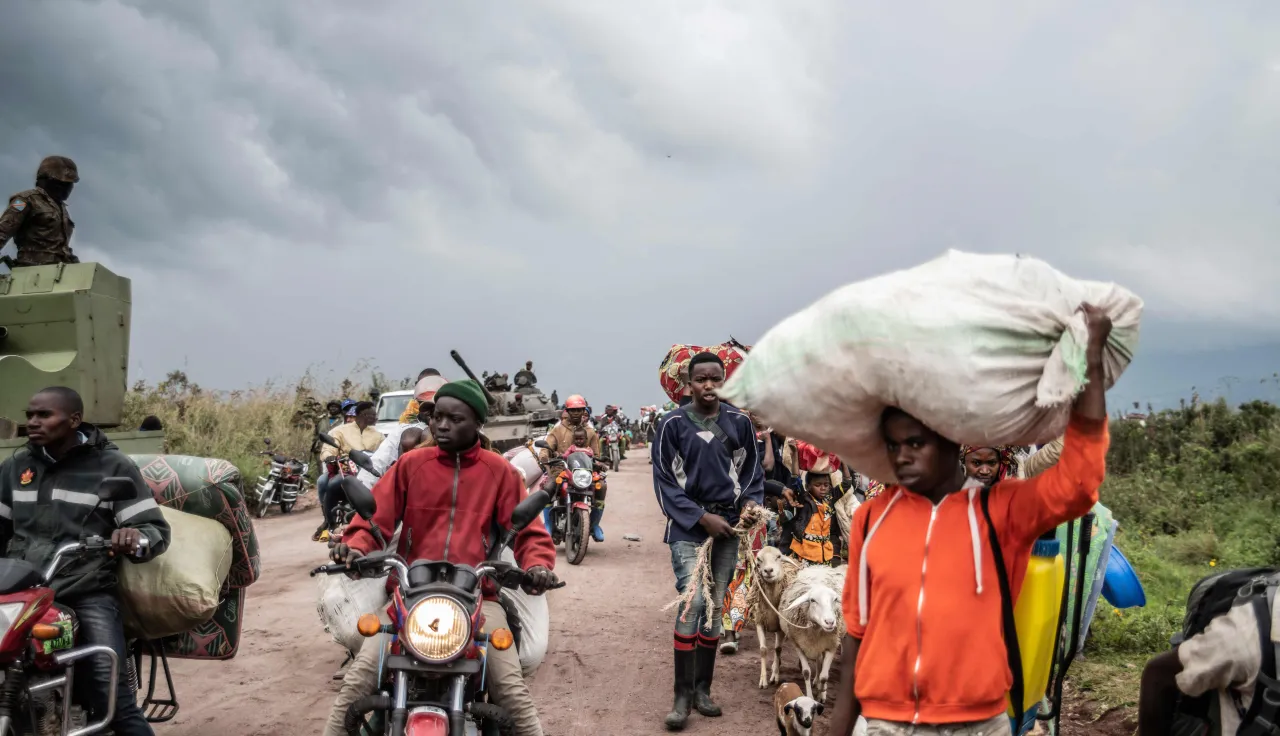
There are more than 100 armed conflicts in the world today. The suffering caused by these conflicts, combined with climate shocks and rising food and energy prices, will make 2023 a year of vast humanitarian need.
Here is a snapshot of humanitarian crises where needs are rising and need sustained attention and support.
Somalia
In Somalia, nearly half of the population, some eight million people, are suffering the devastating consequences of the drought, which has lasted for five consecutive seasons, a climatic event not seen in 40 years. At the same time, we have seen an increase in violent attacks. Central and southern regions are the most severely drought-affected part of the country but are difficult to access for humanitarian actors.
"There is a lack of water. There is no food. The drought is hitting us hard. We are finished if someone doesn't come to our rescue."
Kaha Ahmed, 51-year-old, lost 83 goats to the drought and has only 17 left.
According to the UN, in 2022, more than one million people have left their homes in search of food, water, and livelihoods. About 300,000 people are facing catastrophic levels of food insecurity (IPC Phase 5). Approximately 1.8 million children younger than five years old face acute malnutrition. Our stabilization centre in Baidoa has seen a threefold rise in the number of malnourished children admitted for treatment versus 2021, while ICRC-supported hospitals have recorded a 30% increase in mass casualty events.
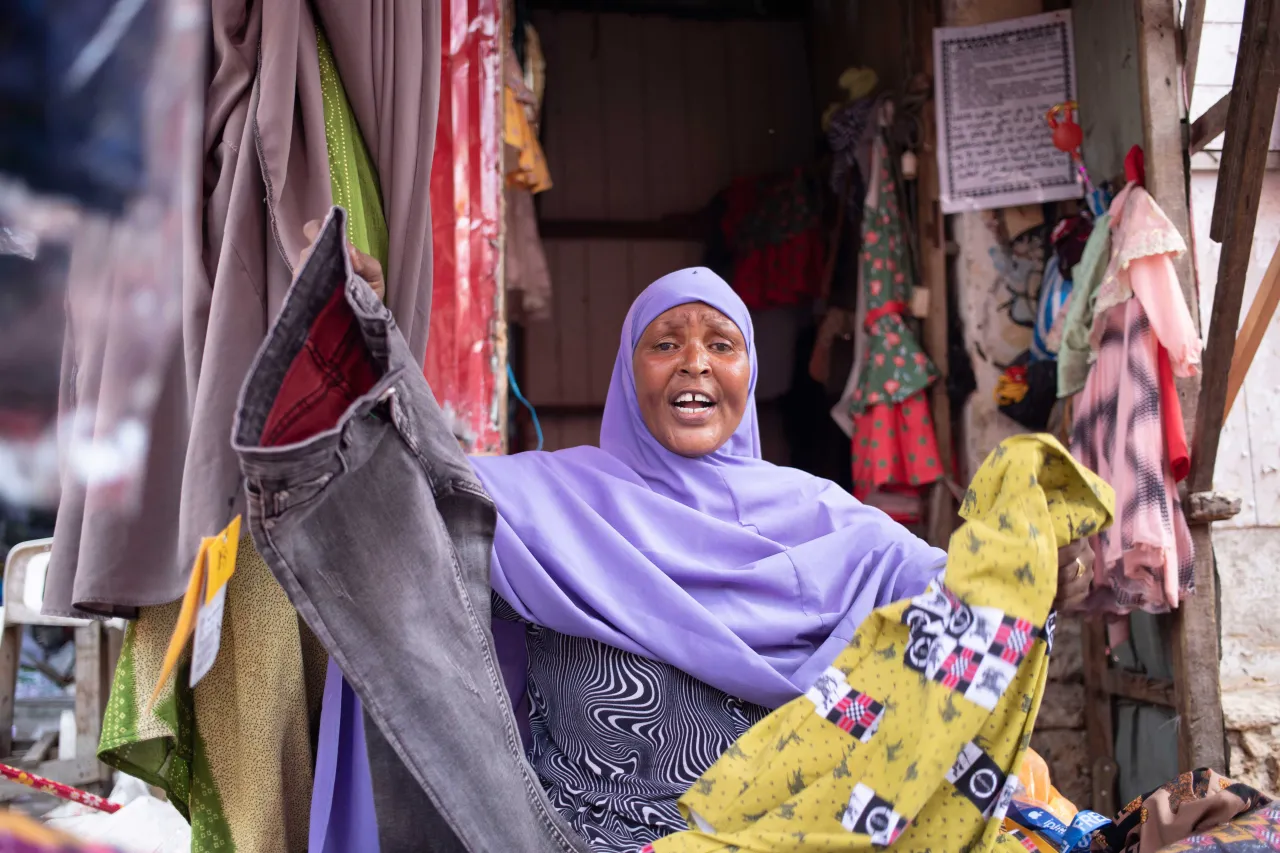
A clothing shop in Mogadishu is run by a woman who received a financial help from the ICRC.
Democratic Republic of the Congo
Since October 2022, fighting intensified in the Democratic Republic of Congo and reached the outskirts of Goma in November. Since the beginning of the year, ICRC surgical teams have treated more than 1,100 patients with weapon-related injuries across the country. This comes on top of more than two decades of conflict that has left men, women and children battling for survival every day.
"My wife had an infection, so I brought her here because there was no one left in the health centers back home. Over there, if you get really sick, you're sure to die."
Ategeka, a displaced resident in North-Kivu
Despite a rise in armed violence in the eastern part of the country and growing needs, this country four times larger than France attracts less and less international attention from donors and the media.
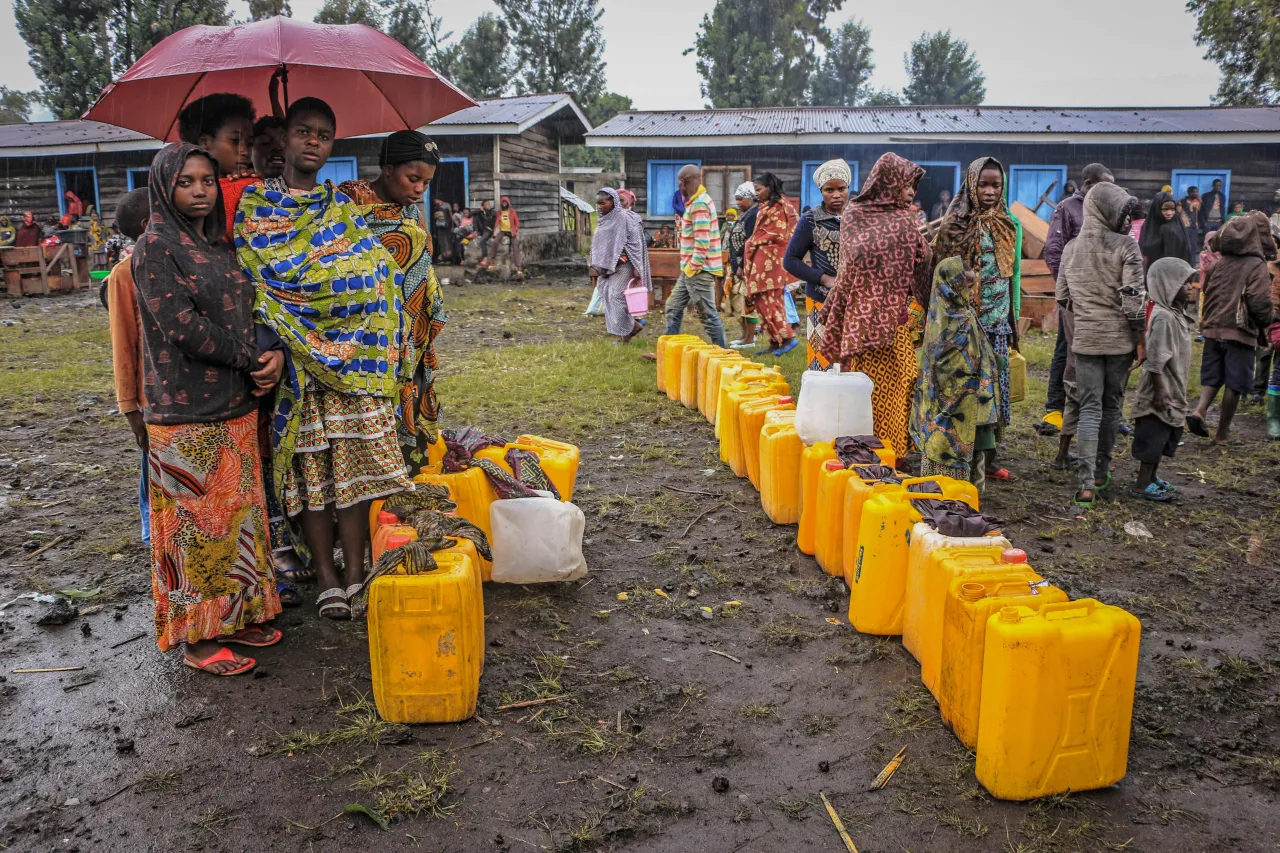
North-Kivu province. Internally displaced people have taken refuge in a school in a small village close to Goma. Young girls wait their turn at an ICRC drinking water distribution.
Yemen
After eight years of armed conflict, the humanitarian situation is likely to worsen in 2023, with 70% of the population reliant on humanitarian aid to survive. Today approximately 19 million people are food insecure countrywide, compared to 16 million last year. That's over 63% of the total population, up from 53% last year. Yemen is dependent on wheat from Russia and Ukraine, adding another layer of difficulty for families struggling to feed themselves.
"One time, my classmate was shot dead on our way to school. I was with him and it was horrific. I was covered in his blood and didn't know what do."
Ahmed, a 17-year-old boy from Taiz
More than 80% of its population live below the poverty line. And with global financial and political commitments failing to keep pace with increasing pressing humanitarian needs, Yemen is on the verge of collapsing.
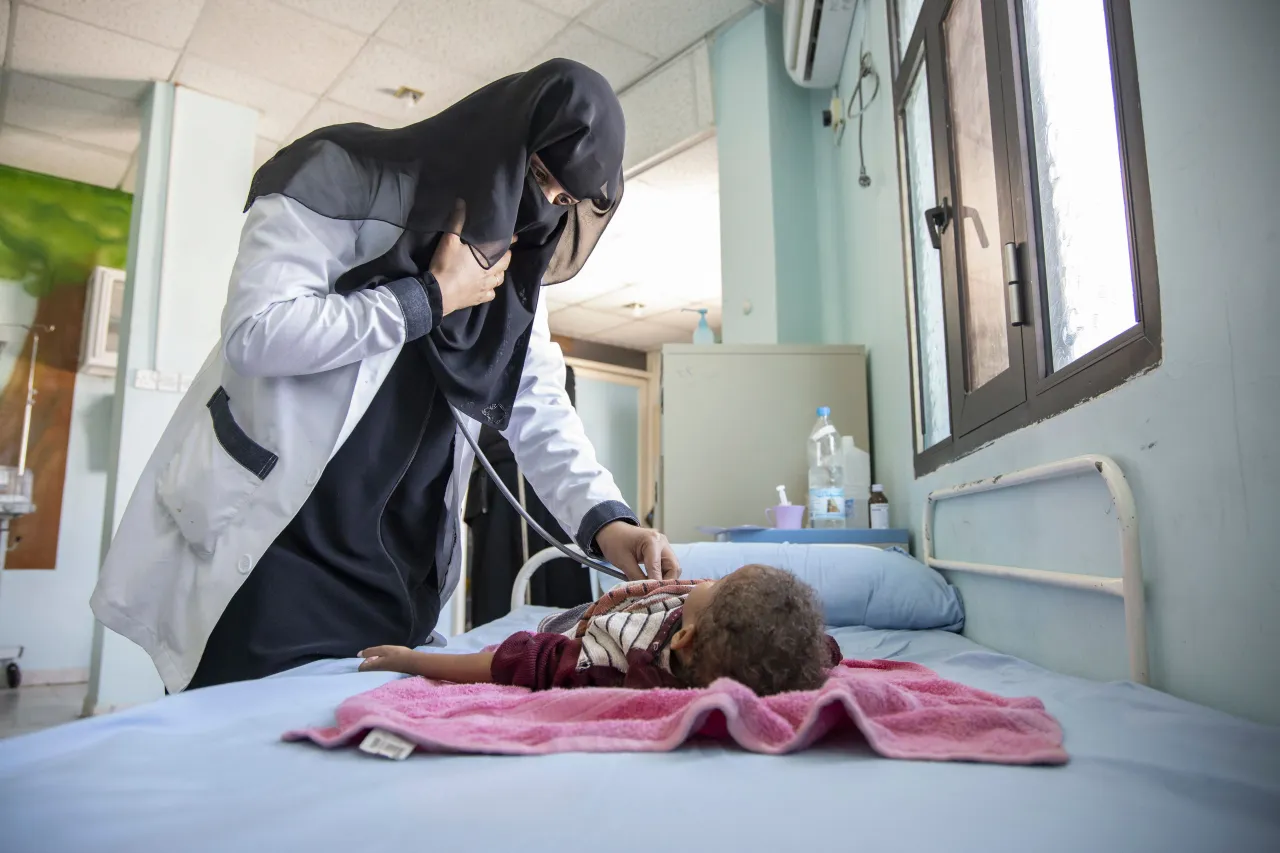
Taiz, Yemeni-Swedish hospital. A doctor treats a 4-year-old girl who suffers from malnutrition, brain atrophy and epilepsy. Her parents cannot afford the regular medical follow-up she needs.
Ethiopia
Though fighting has now halted in northern Ethiopia, the humanitarian needs left in the wake of two years of brutal armed conflict are acute. ICRC teams have resumed moving humanitarian assistance into Tigray by land and air. It also continued assisting people in the neighboring Amhara and Afar. This will need to be sustained and scaled up massively to prevent further suffering after people went for months without food and medical care.
"Some of our patients were in a critical condition and thanks to these medical supplies, many are now recovering and walking again."
Mussie Tesfay, chief administrative director at Ayder Hospital in Mekele
This comes on top of a devastating drought in various regions of Ethiopia. Several consecutive failed rainy seasons led to a drought of such magnitude that livestock died by the millions in some parts of the country. Surviving animals are weak and have lost their market value. Pastoralists see their way of life vanish as well as farmers who can't harvest a thing without rain.
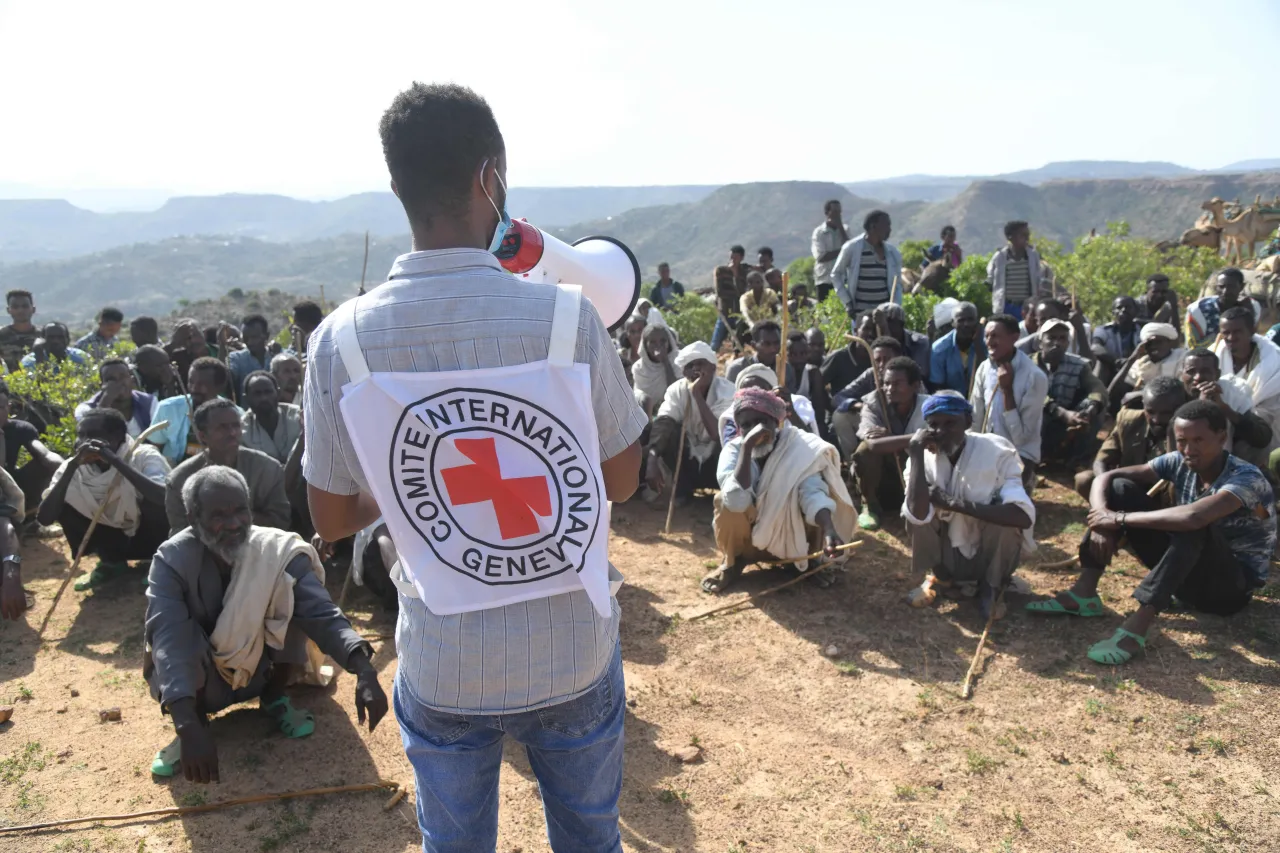
Tigray region. An ICRC staff member informs members of a local community before starting a seeds and fertilizers distribution.
Syria
In Syria, more than 11 years of conflict have seriously damaged the water network, reducing the supply by between 30 and 40 percent. Only 52% of the country's hospitals are operational. This year rising cases of acute watery diarrhea added another layer to the suffering of people and underscored how important it is to prevent the collapse of essential infrastructure. If these systems collapse completely, the impact on communities will be disastrous, from the spread of infectious disease to the potential displacement of significant numbers of people and all that comes with it.
"A public health emergency is the last thing Syria needs."
Fabrizzio Carboni, ICRC director for the Near and Middle East
In northeast Syria, the humanitarian situation remains untenable: basic conditions are deteriorating both inside and outside of camps. As of mid-2022, more than 55,000 people remain in Al Hol, the largest of the camps, 70% of whom are children and enduring miserable living conditions.
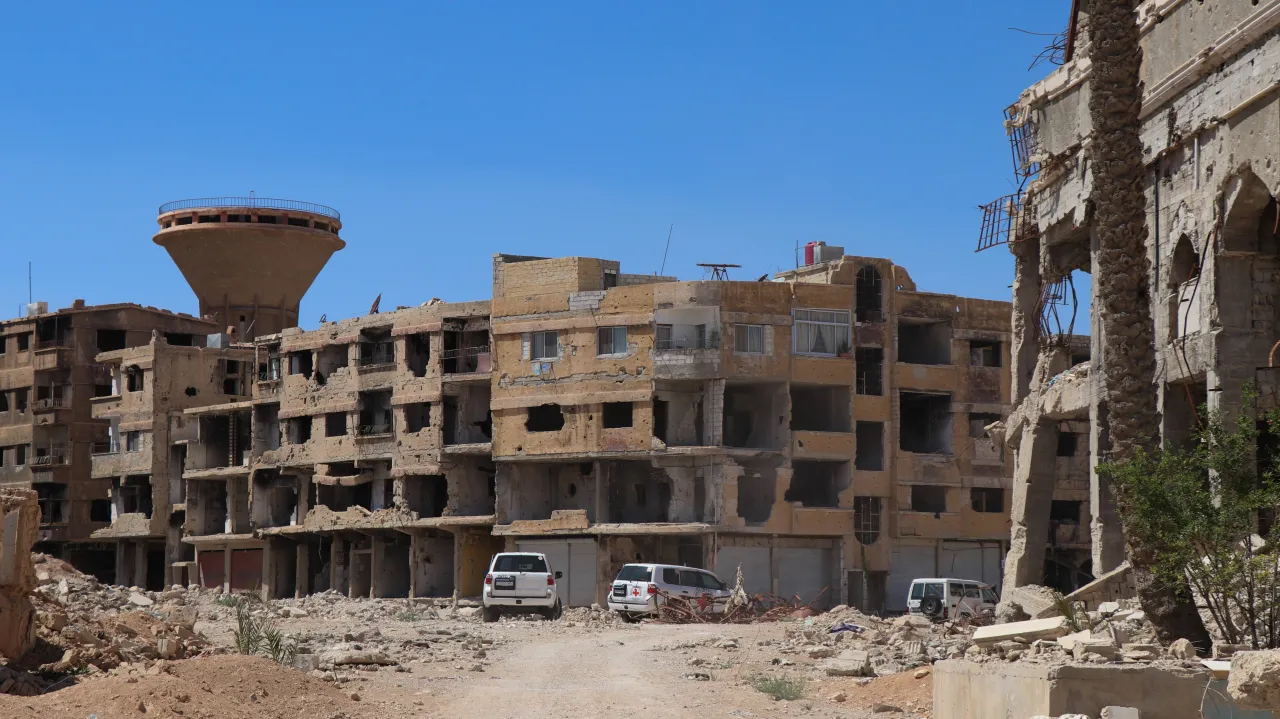
Ammar Saboh/ICRC
Sahel (Burkina Faso, Chad, Mauritania, Mali, Niger)
Climate change, armed conflict and an ongoing food crisis have created a deadly loop in the Sahel with millions of people caught in the middle.
"We would like to advise mothers to breastfeed their children well but when you see them malnourished themselves, you resign yourself. The food crisis really has an impact on women and children."
Dahani Tombiano, midwife in Fada, Burkina Faso.
In 2022, more than 10.5 million people faced malnutrition across the region. For the four million displaced due to conflict and climate change, this spells disaster. More than 80% of the population in the Sahel relies on agriculture to survive; once displaced they lose access to their lands and ways of sustenance, becoming immediately more vulnerable to food insecurity. As resources dwindle, many must share water, food and land with host communities already facing a major food crisis.
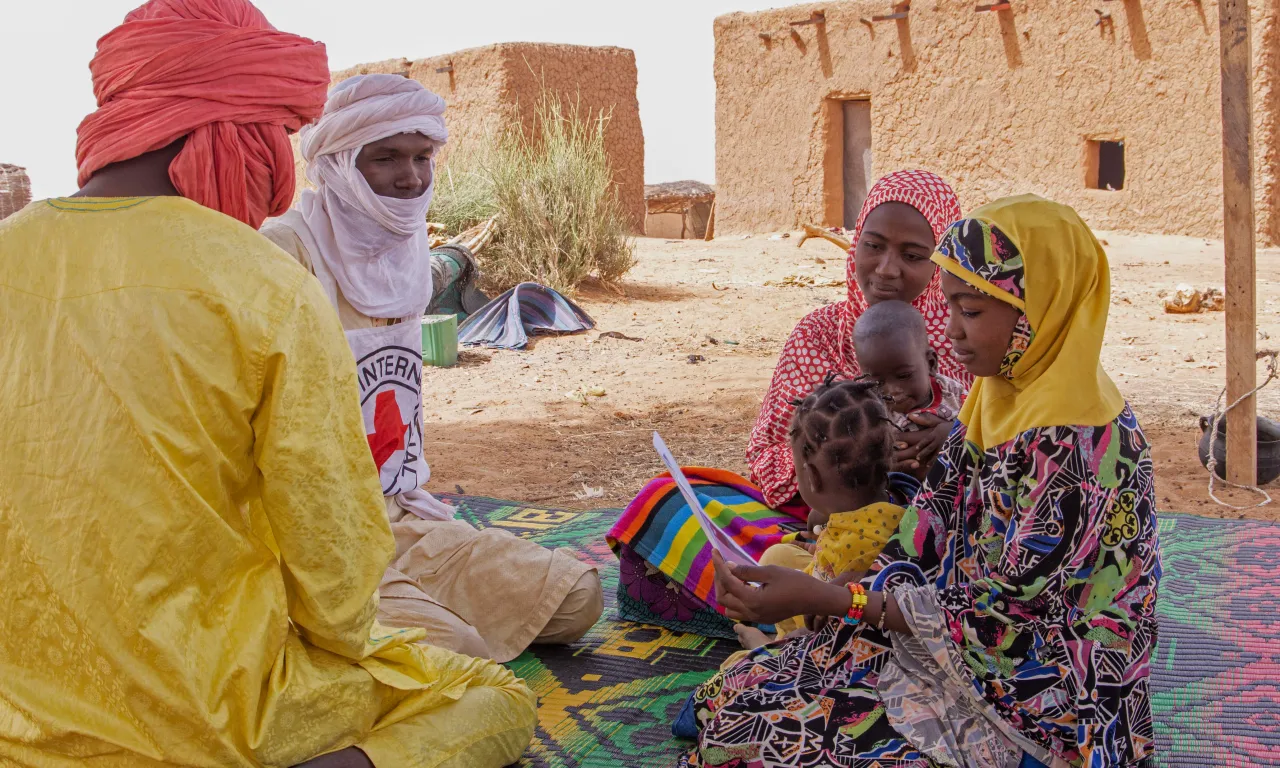
In a village near Ménaka, Mali. Amina (yellow scarf) who fled armed violence in a neighboring country talks to ICRC staff. The information provided will have helped trace her aunt and re-establish contact with her family.
Haiti
Over three million people in Haiti face exacerbated humanitarian needs from protracted armed violence, civil unrest, and the resurgence of cholera. Gun battles between gangs or with police forces are on the rise. The armed violence deters people seeking food or is preventing access to medical treatment, and when they move around despite the widespread insecurity, the risk of being harmed is high.
"Hospitals barely function, and insecurity is a constant source of fear for Haitian families, particularly in the capital Port-au-Prince. A few humanitarian organizations are responding to some of the most urgent needs but much more must be done to prevent a total collapse of essential services."
Yssouf Koné, ICRC Head of Mission Haiti
At the same time, humanitarian access to the population living in areas affected by armed violence continues to be very difficult or near impossible. The cholera outbreak is worsening the situation for thousands of people and is also spreading in Haiti's prisons.
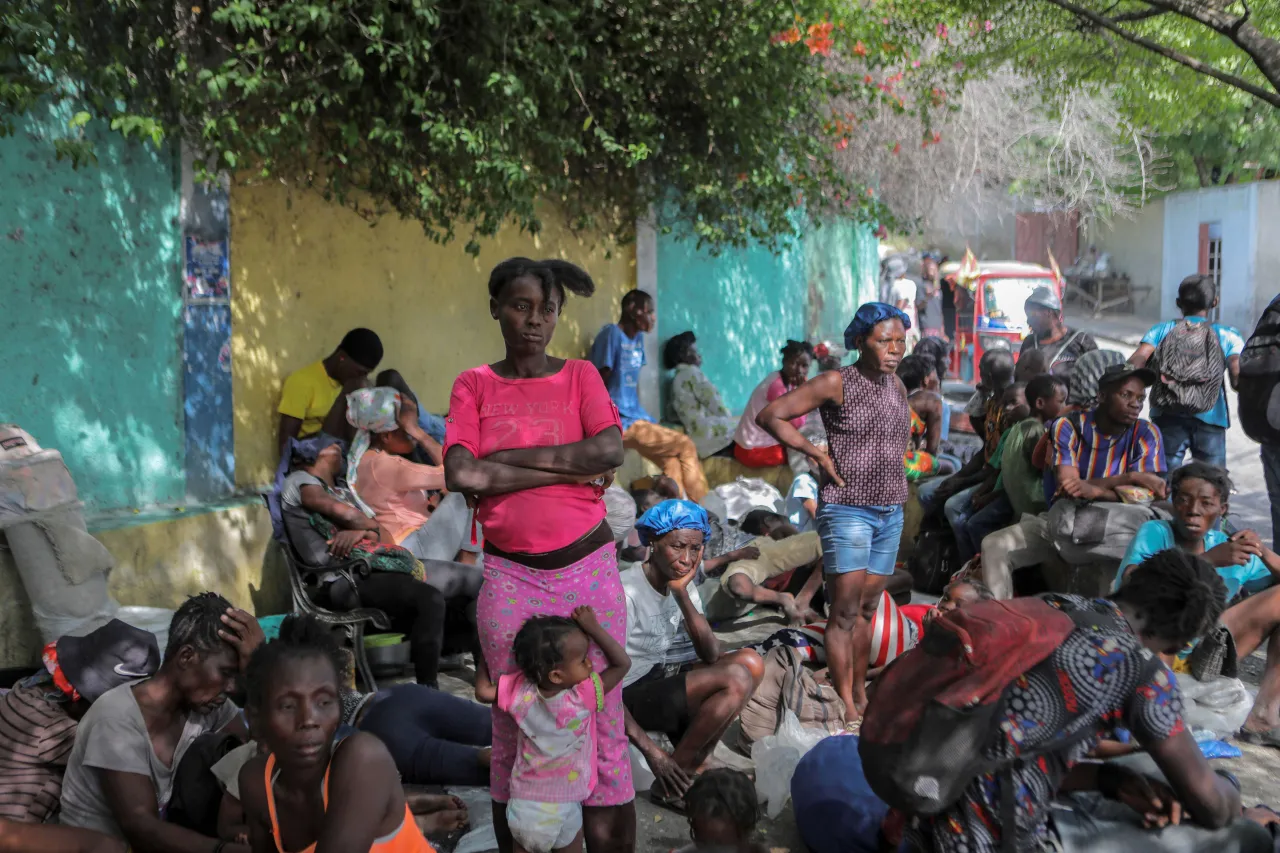
Port-au-Prince, Haiti. People displaced by armed violence in Cite Soleil neighborhood.
Ukraine
Millions of people affected by the Russia-Ukraine international armed conflict are facing the coldest months of the year with limited heat and water after attacks on critical infrastructure. The most vulnerable people, including children, the elderly, injured, and people with disabilities are likely to suffer the most. Not only are they the most impacted by the elements, but also the ones with less means to find alternative sources of heat and water.
"I heard an explosion, and in the blink of an eye, everything collapsed on me. I began to get out from under the rubble, through the labyrinth of the collapsed roof and broken furniture. Somehow, I managed to crawl and bandage my leg."
Nadezhda, a resident in the Donetsk region.
As an example, we repaired 80 damaged houses in the small village of Volnovakha and nearby villages in the Donetsk region, installing new windows, doors and roofs. Additional general repair works were caried out where necessary to help people spend this winter in their homes.
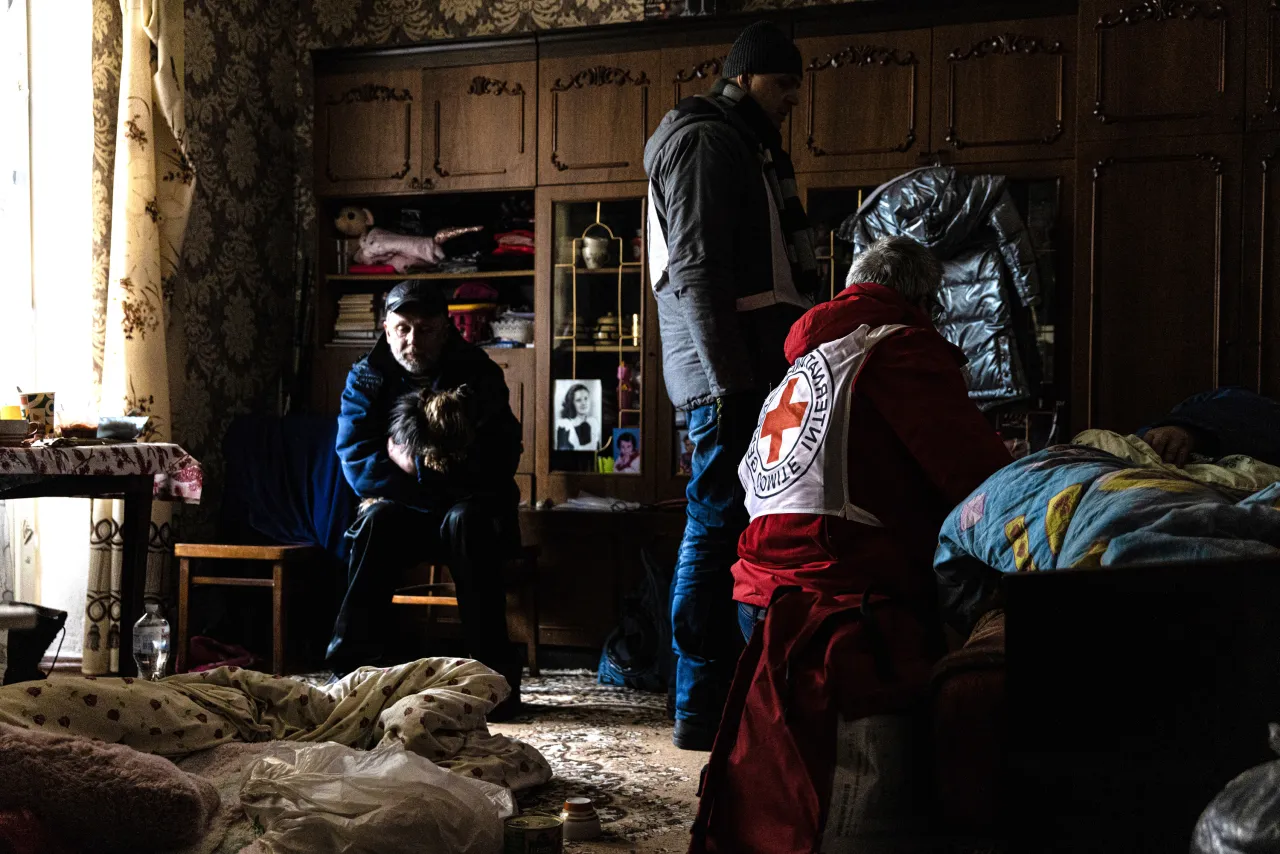
Kiev region, Bucha. An ICRC team assesses the situation of an elderly couple in Bucha. With winter settling in, the most vulnerable people are likely to suffer the most.



